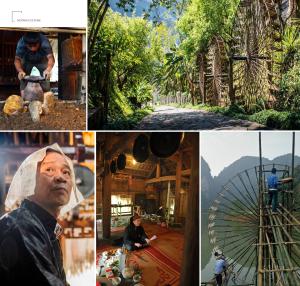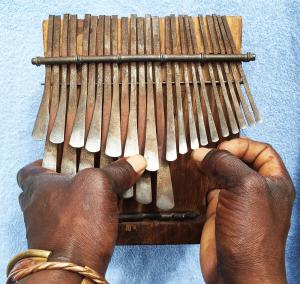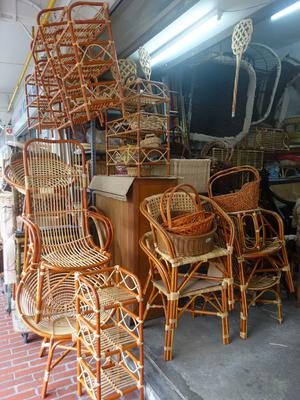“Words from Our Land” is a project that has been continuously developed since 2013, with over 10 years of uninterrupted work. Its main goal is to create educational, research, and social-cultural participation spaces around the Intangible Cultural Heritage (ICH) of Colombian communities. It also aims to revitalize native languages and bring visibility to the ancestral knowledge of Indigenous, Afro-Colombian, and Roma peoples, addressing the loss and degradation of these unique cultural elements that have historically been marginalized.
Throughout its evolution, the project has included workshops, community work, conferences, research processes, promotion of oral traditions, food sovereignty practices, and territorial care, establishing an intercultural and transformative intervention model. Its most recent edition was held in September 2024.
Key Achievements:
Conferences and events around ICH: Numerous educational events with national and international guests have been held, promoting the exchange of ancestral knowledge and visibility of Indigenous peoples in Colombia and other Latin American countries.
Production of intercultural educational materials: Books, podcasts, infographics, video animations, and audiovisual records about territorial origins have been created and distributed freely to strengthen cultural and educational processes.
Transformation of spaces and territorial appropriation: Two critically affected spaces with high substance abuse rates have been rehabilitated and transformed into community gardens and educational centers now frequented by children and adults committed to their land.
Emberá Chamí language seedbed: A training program was launched to preserve this Indigenous language, resulting in the certification of over 100 professionals who now work directly with the Emberá Chamí community in Colombia.
Training of trainers in ICH: Over 200 workshops have been held in schools and other training spaces, educating more than 500 teachers on interculturality and cultural heritage.
Collaborative work with communities and traditional knowledge holders: The project is carried out in partnership with knowledge keepers and leaders from Indigenous and Afro-Colombian communities, promoting a community-based, respectful, and horizontal approach.
Words from Our Land has received 9 awards from the Pereira Department of Culture, the Risaralda Department of Recreation, Sport and Culture, and the Colombian Ministry of Cultures, Arts and Knowledge. In 2023, it was honored with a Sustainable Transformation Award in Pereira, Risaralda. Additionally, several related subprojects have received 8 more recognitions from these same institutions. In 2023, the Oshún Corporation received the "Sustainable Transformation Award 2023" granted by the Fundación Universitaria del Área Andina, which recognizes impactful projects and initiatives that contribute to the Sustainable Development Goals, aiming to build an equitable, just, and innovative society.
List of Recognitions:
Winner of the 2018 Municipal Cooperation Call by the Pereira Department of Culture.
Winner of the 2019 Municipal Grants by the Pereira Department of Culture.
Winner of the 2019 Municipal Cooperation Call by the Pereira Department of Culture.
Winner of the 2021 National Cooperation Call by the Ministry of Culture.
Winner of the 2022 Municipal Cooperation Call by the Pereira Department of Culture.
Winner of the 2022 Departmental Cooperation Call by the Risaralda Department of Culture and Sports.
Winner of the 2023 National Cooperation Call by the Ministry of Cultures, Arts and Knowledge.
Winner of the 2024 National Cooperation Call by the Ministry of Cultures, Arts and Knowledge.
Winner of the 2024 Cooperation Call by the Pereira Department of Culture.
04-26-2025
| Institutional and human capacities | The project “Words from Our Land” is sustained by a robust network of human and institutional capacities committed to the active safeguarding of Colombia’s Intangible Cultural Heritage (ICH). Its strength lies in collaborative work with ancestral knowledge holders, artists, researchers, cultural collectives, educators, and an interdisciplinary technical team that ensures the holistic development of each initiative. Key allies include traditional knowledge keepers from Indigenous groups such as the Muiska, Emberá, Kamëntšá, Wayuu, and Amazonian communities, as well as Afro-Colombian collectives from Risaralda and Chocó. The project also collaborates with the Youth Network for Linguistic Diversity and renowned oral narrators at both national and international levels, along with writers, artists, and researchers from Bolivia, Brazil, Ecuador, Argentina, and Mexico. One of the project’s major achievements has been the creation of a team of native translators in four Indigenous languages, one Creole language, and Colombian Sign Language. This enables effective intercultural communication and the creation of truly inclusive educational materials. On the academic front, internship agreements have been formalized with institutions such as the Technological University of Pereira and the University of Cundinamarca, strengthening training, research, and community engagement processes. Currently, the project operates four community outreach centers, with its main base located in the district of Caimalito (Pereira, Risaralda). This area is marked by the convergence of Emberá Chamí Indigenous communities, Afro-Colombians, and rural families displaced by armed conflict from regions such as Risaralda, Chocó, and Antioquia. It has become a hub for cultural resistance, fostering territorial care, language revitalization, and community training. | |
| Transmission and education | “Words from Our Land” has become a national benchmark for the educational and community transmission of Intangible Cultural Heritage (ICH), thanks to its implementation of experiential, intercultural, and community co-created methodologies. Its educational approach is based on respect for ancestral knowledge and the collective construction of learning. Notable Methodologies Include: • Circle of Words and Knowledge Dialogues: Participatory spaces encouraging intergenerational and horizontal exchange between elders, youth, children, and adults. • Didactic Basket: A tactile pedagogical tool created with and for the communities, containing symbolic and ritual elements such as woven items, staffs, knowledge cards, and sacred objects, allowing teaching from the worldview of each people. • Itinerant Museum “Chumbe de Historias”: A mobile exhibition bringing replicas of heritage objects, infographics, card games, and oral narratives to communities, fostering learning and heritage ownership. • Abuara Game: A board game designed to help understand Indigenous and Afro-Colombian perspectives on peace, territory, and harmonious living (buen vivir). These tools are complemented by gamification strategies, use of ICTs, and multimedia materials (videos, podcasts, animated infographics), enriching learning in both formal and non-formal contexts. This educational strategy ensures effective intergenerational knowledge transmission, strengthens community leadership, and builds local capacities to ensure the sustainability of cultural processes. The project also offers pedagogical consulting to educators, focusing on curricula with ethnic and intercultural approaches. Diplomas and training courses are developed in collaboration with universities, councils, and Indigenous territories, promoting inclusive, context-sensitive education with strong territorial roots. A cornerstone of the project is community empowerment: communities are not merely beneficiaries, but protagonists. The initiative encourages them to develop their own cultural projects, ensuring long-term sustainability. To support the dissemination and circulation of ICH, the project works with community media and cultural venues, such as: • Regional radio stations: Remigio Antonio Cañarte (covering 88 municipalities in the Coffee Region and beyond), Universitaria Estéreo, Radio UCP, and Ekos1360. • Film clubs: Cámara en Mano, Cine en Cámara (Chamber of Commerce of Pereira), and the Cineclub of the French Alliance in Pereira, where intercultural audiovisual content produced by the project is screened. This process has been supported by institutions such as the Ministry of Cultures, Arts and Knowledge, the Pereira Department of Culture, and the Risaralda Governor’s Office, through awards, grants, and cultural incentives. Strategic alliances have also been formed with regional cultural organizations, cultural collectives, Indigenous councils, and community boards, consolidating a collaborative network in defense of Colombia’s living memory and cultural diversity. | |
| Inventorying and research | Program: “Words from Our Land” (2013–present) This pioneering initiative promotes education, research, and cultural intervention through three complementary strategies: participatory workshops in schools and communities, cultural immersions with traditional knowledge keepers, and specialized conferences. Each year, the program addresses different aspects of Intangible Cultural Heritage (ICH), including: • Native languages (2013, 2022) • Literature and oral tradition (2014) • Ancestral feminine knowledge (2015) • Community-based education (2016) • Traditional songs (2018, 2024) • The pre-Columbian Quimbaya legacy (2019) • Sexuality in oral narratives (2021) • Community conceptions of peace (2023) • Traditional medicine (upcoming in 2025) Pedagogical Materials This intercultural educational initiative leverages multimedia tools and innovative teaching materials to strengthen the transmission of ICH: • Audiovisual production: 7 video animations and 10 short documentaries on ancestral knowledge and the Muiska people’s law of origin. Watch here • Podcast series: 27 episodes aired on Remigio Antonio Cañarte cultural radio, reaching 88 Colombian municipalities and international audiences in 8 countries. • Itinerant Museum: A sensory and educational experience featuring origin stories and scaled replicas of traditional artifacts. Editorial resources: 15 virtual infographics on Colombia's linguistic and cultural diversity 7 bilingual intercultural publications: “Ebera bedeo O: Path to Embera Language 1” “Ebera bedeo O: Path to Embera Language 2” Picture book: “Nabsecadas: A Journey to the Heart of the Quimbayas Research article: “ẼBẼRA BEƊEA: Heart of the Culture” Booklet: “Tracing the Footsteps of the Zipas” Playful-pedagogical tools: - Board game: “Ãbuarãa: Unity” Didactic basket with representative cultural items This project has been recognized with two awards: the Municipal Stimulus Program (2021) and the Ministry of Cultures, Arts and Knowledge (2023). Community Initiative A pedagogical project aimed at strengthening the social fabric of vulnerable communities in Caimalito (Pereira), through mother tongue workshops, traditional weaving, native dances, and community gardens. The intergenerational and intercultural approach has benefited over 700 people from Indigenous, Afro-descendant, and mestizo backgrounds, revitalizing endangered cultural practices. Emberá Language Seedbed A hybrid (online and in-person) training space led by Indigenous educators and researchers. It combines language teaching with cultural revitalization. So far, 44 online sessions and 15 in-person meetings have been held, benefiting professionals working with Emberá communities. Educational materials are freely available to democratize traditional knowledge. “Healing Gardens” Initiative This project combines cultural training with environmental awareness by creating agroecological community gardens. These learning spaces recover knowledge and practices related to traditional medicine, medicinal plant use, and ancestral farming techniques—bridging biocultural heritage with environmental sustainability. These educational programs have shown significant impact on ICH safeguarding through: • Strengthening of cultural identities • Language revitalization • Participatory documentation • Intergenerational knowledge transmission • Community empowerment for autonomous heritage management | |
| Policies as well as legal and administrative measures | Corporación Oshun was legally established on August 30, 2016, registered with the Pereira Chamber of Commerce (No. S0505550) and the Colombian tax authority DIAN (NIT 901003898-9). It is recognized as a non-profit entity under a special tax regime, affirming its legal and social commitment to defending cultural heritage and collective rights. As a sovereign and multicultural state, Colombia has developed a strong legal and policy framework to recognize and promote the safeguarding of Intangible Cultural Heritage, especially in relation to its Indigenous, Afro-Colombian, Raizal, and Palenquero communities. • The 1991 Colombian Constitution guarantees cultural and linguistic rights and acknowledges the autonomy of ethnic peoples to preserve their traditions, languages, and knowledge. • Law 397 of 1997 (General Culture Law), amended by Law 1185 of 2008, sets the legal guidelines for ICH protection. • Internationally, Colombia ratified the 2003 UNESCO Convention, committing to the preservation and transmission of intangible heritage. Implementation is carried out through the National ICH Program and Special Safeguarding Plans (PES) developed in dialogue with bearer communities. Moreover, Colombia has launched the Decade Plan for Native Languages 2022–2032, aimed at revitalizing and protecting the country's 68 Indigenous languages, promoting their use in education, communities, and digital media—essential for the survival of oral ICH expressions such as oraliture, which organizations like Oshun strengthen through intercultural pedagogical methods. Lastly, the National Development Plan 2022–2026, with its territorial and differential approach, recognizes ethnic peoples as strategic actors in peacebuilding. It includes specific actions to reinforce social fabric, memory, culture, and education with an ethnic focus—fully aligned with Oshun’s cultural and community work. | |
| Role of intangible cultural heritage and its safeguarding in society | The project “Words from Our Land” holds critical relevance in today’s Colombian and international context due to its commitment to the preservation, revitalization, and promotion of Intangible Cultural Heritage (ICH). ICH is understood as the body of knowledge, practices, expressions, languages, and techniques that communities recognize as integral to their cultural identity. Its importance is rooted in several key pillars that address both community needs and Colombia’s international commitments under UNESCO: 1. Preservation of Cultural Diversity: In an era of accelerated globalization, many ICH expressions face the risk of extinction. This project acts as a safeguarding mechanism that documents, promotes, and protects oral traditions, ritual practices, artistic expressions, and ancestral techniques. Its community-based approach ensures the living continuity of heritage from the voices of its bearers. 2. Language Revitalization: Native languages are a core dimension of ICH. Words from Our Land promotes the revitalization of Indigenous languages such as Embera Chamí, and has trained translators and cultural promoters in several native tongues. Language not only conveys knowledge but also worldview, history, and spirituality. 3. Cultural Identity Strengthening: The project fosters appreciation for ancestral knowledge and origin stories, reinforcing community cohesion and pride. By rescuing and revaluing cultural expressions, it helps heal historical wounds of exclusion and builds self-esteem and belonging. 4. Active Community Participation: A major strength of the project is its participatory approach. Communities are not just beneficiaries but co-creators of content and methodologies. This empowers them as guardians of their heritage and supports autonomous and sustainable cultural management. 5. Education, Awareness, and Intergenerational Transmission: Through innovative pedagogical strategies such as the Didactic Basket, Chumbe de Historias (Itinerant Museum), and the Abuara Game, the project enables experiential learning of ICH. These methods support intercultural education in both formal and non-formal contexts, raising awareness among new generations. 6. Intercultural and Inter-Institutional Collaboration: The project builds a broad network of community, institutional, and academic partners, nationally and internationally. This network enriches safeguarding processes through multidisciplinary and intercultural perspectives, expanding the project’s reach and social impact. 7. Research, Production, and Circulation of Cultural Content: The project has created a rich cultural archive including publications, podcasts, video animations, stories, infographics, and booklets, all freely accessible. These materials not only highlight Colombia’s living cultures but also democratize knowledge and promote broad public engagement with ICH | |
| Awareness raising | “WORDS FROM OUR LAND" is a cultural and educational initiative that raises awareness about the importance of protecting and revitalizing ancestral knowledge systems, native languages, and community-based worldviews. Rooted in intercultural dialogue, the project promotes understanding and appreciation of indigenous and Afro-descendant identities through participatory methodologies that integrate oral tradition, art, and education. By engaging children, youth, elders, educators, and traditional knowledge holders, the project creates dynamic spaces for the co-construction of memory, identity, and collective healing. It challenges historical exclusion by amplifying the voices of those traditionally marginalized, making their stories, languages, and visions of the world visible and respected. Through storytelling, multilingual education, artistic creation, radio and podcast series, public events, and media presence, WORDS FROM OUR LAND builds bridges between communities and broader society. It cultivates empathy and recognition, highlighting the relevance of ancestral wisdom in shaping a more just, inclusive, and sustainable future. Its impact has been recognized nationally, contributing to the advancement of Sustainable Development Goals related to education, cultural diversity, and gender and territorial equity. | |
| Engagement of communities, groups and individuals as well as other stakeholders | The project has a wide-reaching and diverse impact, targeting all audiences: children, youth, adults, researchers, teachers, students, single mothers, and Indigenous, rural, displaced, demobilized, and NARP (Afro-Colombian, Raizal, and Palenquero) populations. It directly benefits around 15,000 people and indirectly reaches nearly 30,000 through its various components. With an intercultural approach, the project prioritizes diverse populations, promoting inclusion, knowledge exchange, and respect for cultural plurality. This approach has guided the implementation of many initiatives in partnership with foundations, artists, public and private institutions, and ethnic communities from across Colombia. Key partners include: • Pereira Department of Culture • Zipaquirá Department of Education • University of Cundinamarca • French Alliance of Pereira • Technological University of Pereira • Andean Area University Foundation • UTP Indigenous Council • Cumba Quimbaya People (Riosucio) • Umbra People (Quinchía) • Colombian Ministry of Culture Project activities have focused on recovering origin stories, creating intercultural pedagogical materials (video animations, podcasts, infographics, children’s stories, booklets), and conducting field research in the Coffee Cultural Landscape (Eje Cafetero). | |
| International engagement | Words from Our Land aligns with several United Nations Sustainable Development Goals (SDGs) from the 2030 Agenda, contributing from a cultural, educational, and community perspective to global efforts. • While it does not directly address SDG 1 – No Poverty, it supports indirect poverty reduction by strengthening identity, self-worth, and social cohesion, while opening up sustainable cultural tourism opportunities. • Its educational efforts directly support SDG 4 – Quality Education through workshops, conferences, research, and the creation of teaching materials that promote Indigenous languages, traditions, and ancestral wisdom. • The project also supports SDG 5 – Gender Equality by actively promoting women's participation and leadership in all stages, and ensuring safe spaces for their expression, creativity, and decision-making. The project has developed international alliances to strengthen the safeguarding, revitalization, and dissemination of ICH through an intercultural, community-driven approach based on mutual respect. Notable collaborations include: • MCCQ – Mother Caretakers of Qom Culture (Argentina): This network enabled virtual training spaces focused on ICH protection, sharing pedagogical methods for language revitalization, and reflecting on women’s roles as knowledge bearers. • French Alliance (Pereira): In collaboration with this institution, audiovisual content has been produced in Embera, Spanish, and French, helping internationalize Colombia’s ICH through oral traditions, origin stories, and Indigenous practices. Through community communication efforts, the project promotes “Chumbe de Historias”, a podcast series recovering and sharing the oral ICH of communities. Broadcast by Remigio Antonio Cañarte radio, it reaches 88 municipalities across the Coffee Region, northern Valle, southern Antioquia, and eastern Chocó, with an estimated audience of 80,000. The series has gone global, reaching listeners in countries including Germany, the U.S., Australia, and Brazil—becoming a powerful international channel for Colombia’s oral heritage. Through these strategies, the project actively contributes to the safeguarding of ICH, promoting traditional voices, cultural dialogue, and global knowledge exchange. | |
| References |
|
|
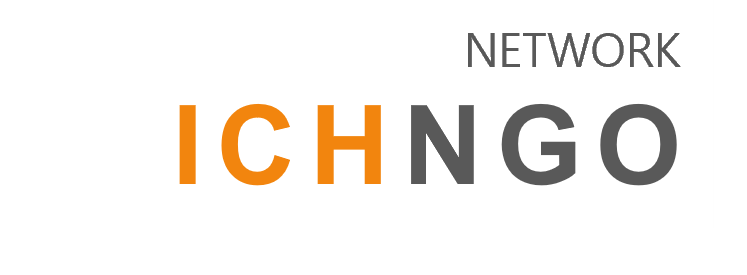
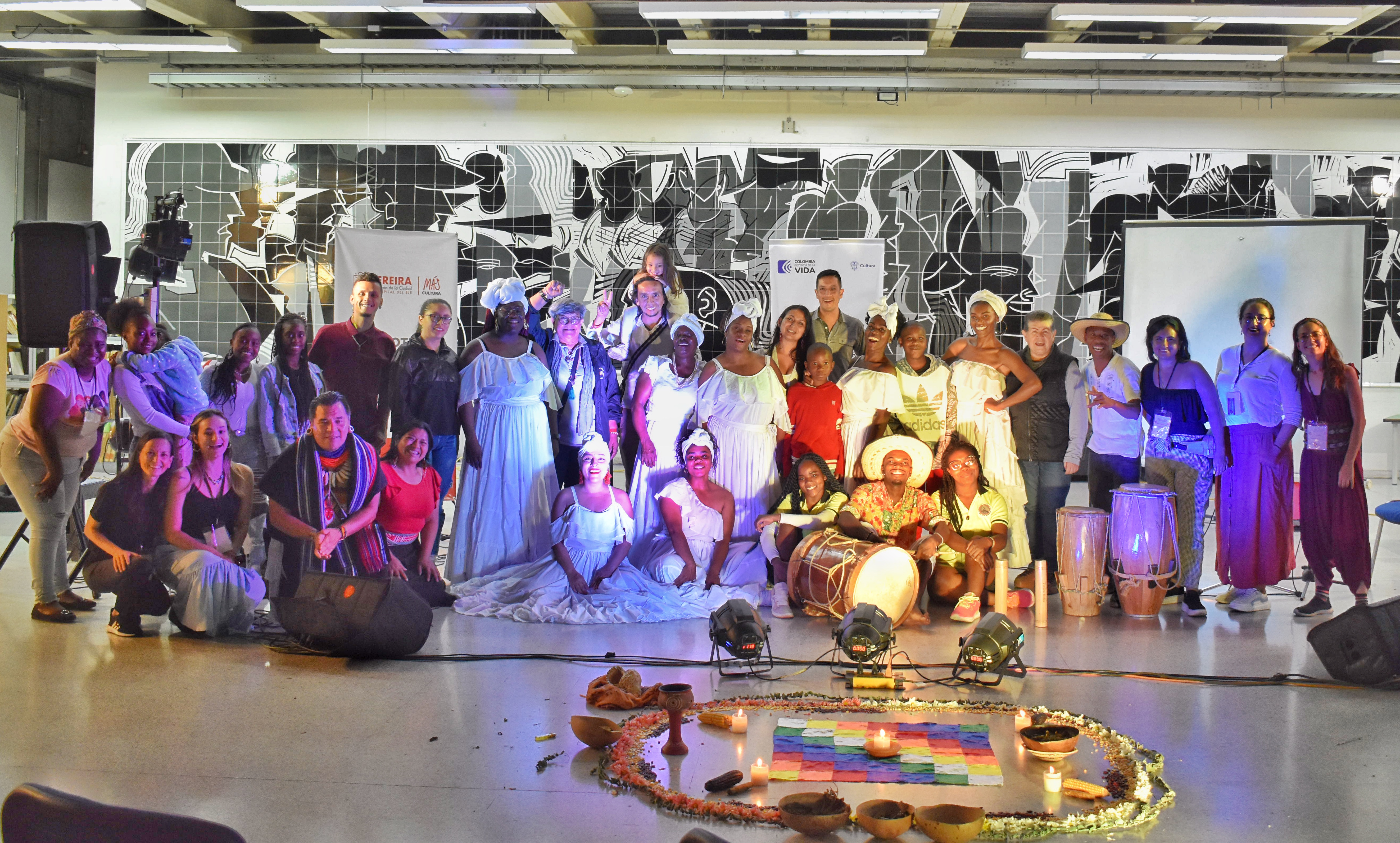
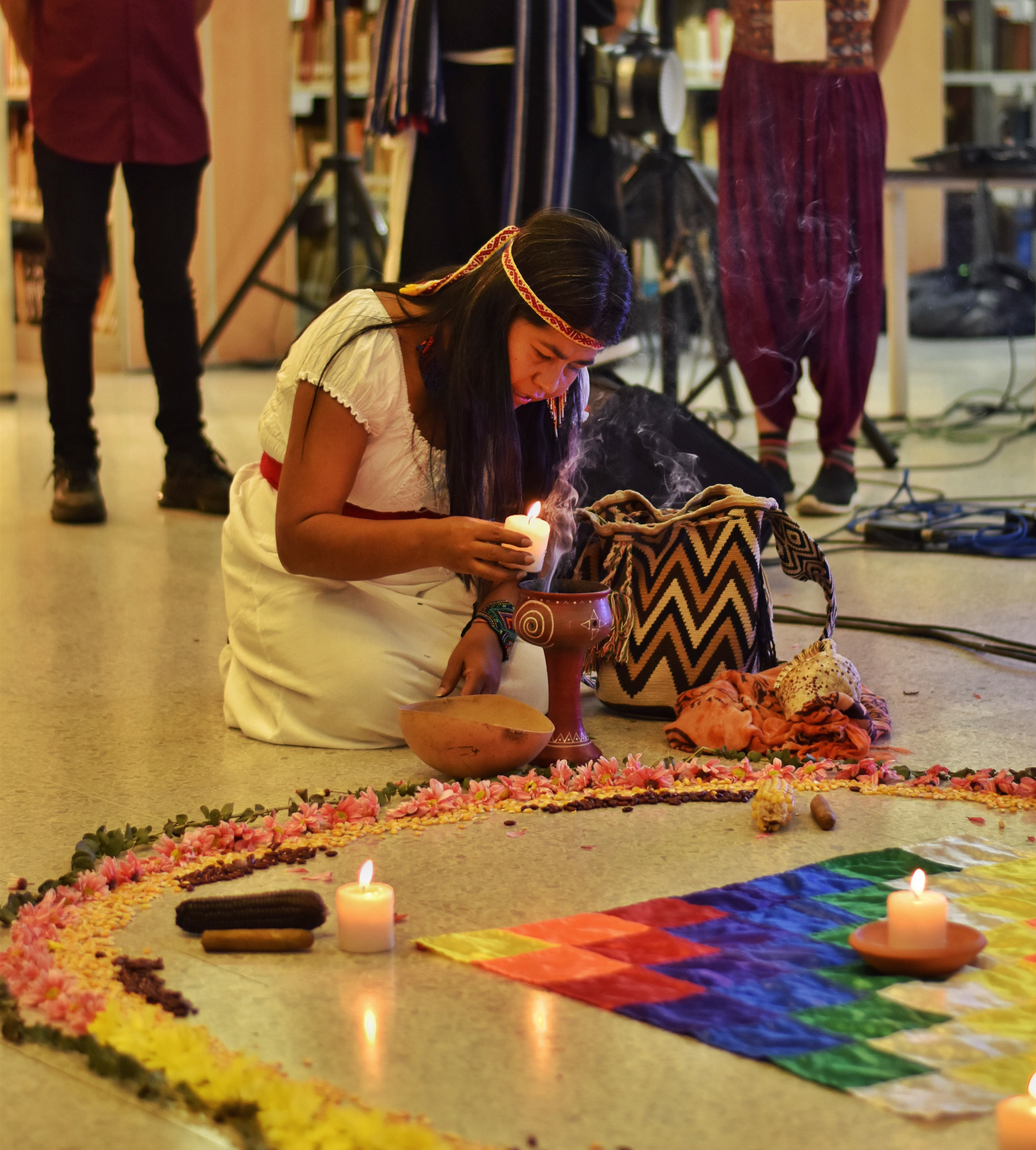
.jpeg)
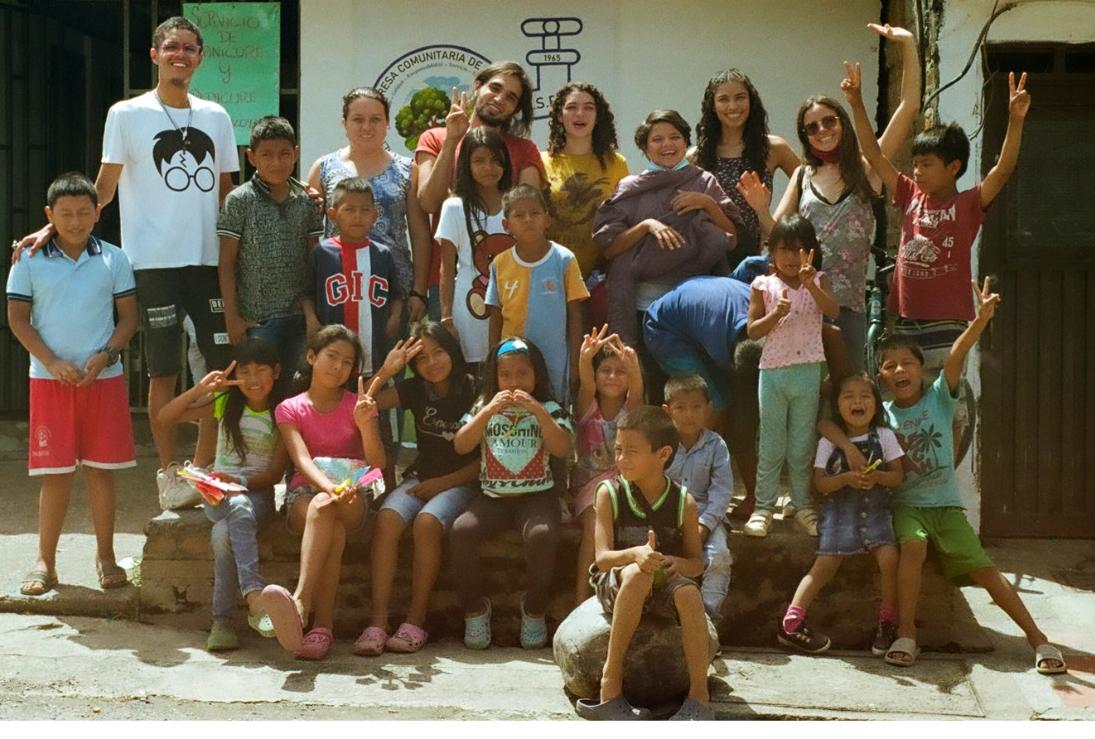
.jpeg)

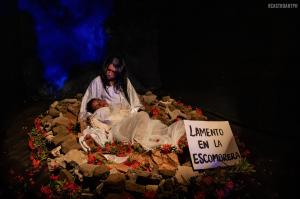
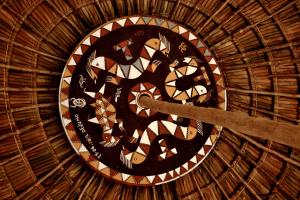
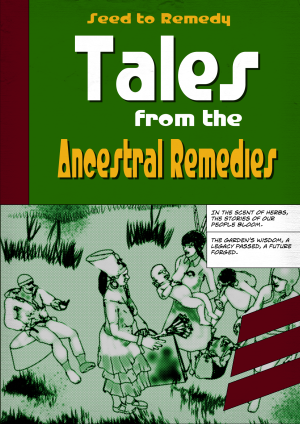
.jpeg)
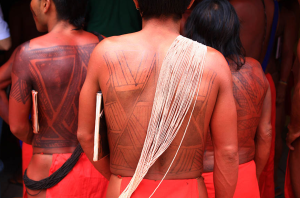
.jpg)
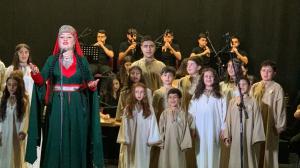
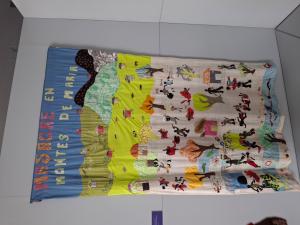
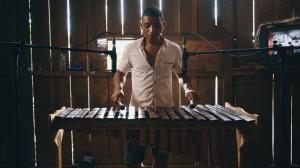

.png)
.jpg)















_(31711258567).jpg)

















